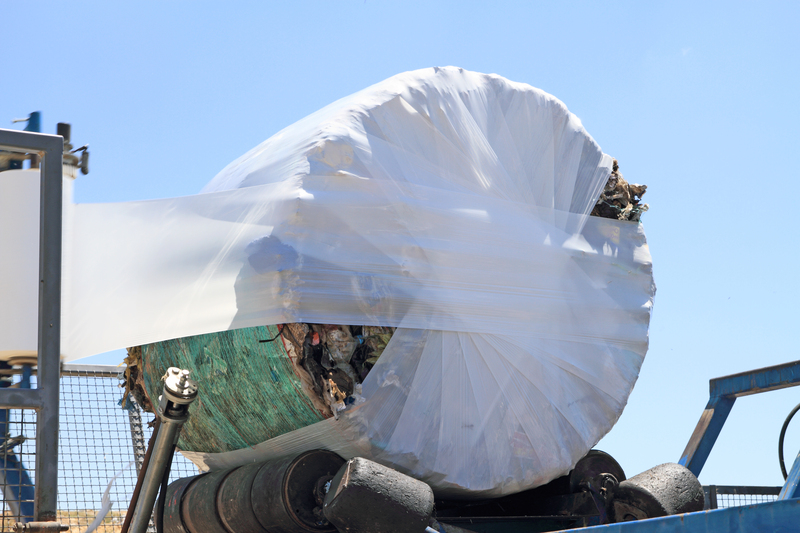Get Rid of Large Waste Items Without Breaking the Bank: A Complete Guide
Are you looking to get rid of large waste items from your home or business, but concerned about cost? Disposing of bulky junk such as old furniture, appliances, mattresses, or demolition debris shouldn't have to drain your wallet. With smart strategies, a little planning, and knowledge of available options, you can clear out big items on a budget. In this comprehensive guide, we'll show you all the best ways to remove large unwanted items affordably, efficiently, and legally.

Understanding Large Waste Items
Large waste items, also known as bulk trash, bulky refuse, or oversized debris, are those that are too big or heavy for regular garbage collection. Examples include:
- Old sofas and recliners
- Broken mattresses and box springs
- Household appliances like fridges, stoves, washing machines
- Electronic waste (e-waste) like TVs and computer monitors
- Construction debris (wood, drywall, doors)
- Large carpets and rugs
- Outdoor equipment (grills, patio sets, swing sets)
- Yard waste (tree branches, logs)
Getting rid of these items often requires special handling due to their size, weight, or materials. Municipal garbage trucks generally do not pick up such items during routine services, so you'll need alternate disposal solutions.
Why Proper Large Waste Disposal Matters
Improperly disposing of bulky items can lead to hefty fines, harm to the environment, and unsightly neighborhoods. Junk left on the curbside outside of collection times may attract scavengers or even become illegal dumping sites. The responsible, cost-effective removal of large junk is important for:
- Maintaining community cleanliness and property values
- Protecting local ecosystems and landfill capacity
- Complying with municipal waste regulations
- Preventing safety hazards around your property
Affordable Ways to Get Rid of Large Waste Items
Let's explore your best options for cheap, convenient, and eco-friendly bulk item disposal. Consider the following strategies to get rid of large trash on a budget.
1. Utilize Municipal Bulk Trash Pickups
Many cities offer annual or seasonal bulk waste collection events where you can put big items out at the curb for free or at a low cost. Here's how to benefit:
- Visit your local government's website to find the bulk pickup schedule and rules
- Register (if required) for your neighborhood's pickup day
- Follow prep guidelines - remove doors from refrigerators, tape loose parts, etc.
- Place items at the curb no earlier than allowed to avoid possible fines or rejections
Note: Some municipalities limit the number or types of bulky items accepted per pickup. Hazardous materials, tires, and certain electronics may not be eligible.
2. Take Advantage of Dumping or Recycling Centers
Local landfills, transfer stations, or recycling centers may accept bulk items for a nominal fee--often much less than hiring a private hauler. Here's what you need to know:
- Contact the facility to check accepted items, rates, and hours
- Sort items into recyclable (metal, e-waste) vs. landfill
- Rent or borrow a truck/trailer for transport if needed
- Ask about free "community cleanup days" for cost savings
Recycling centers often take appliances and electronics for free or at reduced rates because components can be repurposed. Always call ahead before loading up to confirm policies.
3. Donate Usable Large Items
Why trash it if someone else can use it? Plenty of donation centers and charities welcome gently used furniture, working appliances, and other large goods. Benefits include:
- Less waste in landfills and a second life for your items
- Possible tax deductions if donating to a registered charity
- Some charities offer free pickup services for big donations
Popular donation options include:
- Habitat for Humanity ReStores
- Goodwill and Salvation Army
- Local shelters and non-profits
Always call ahead to ensure your item is acceptable, clean, and safe to donate.
4. Sell or Give Away Your Large Waste Online
The saying "One person's trash is another's treasure" rings true. Try these no- or low-cost ways to dispose of oversized junk:
- Post on Facebook Marketplace, Craigslist, or OfferUp
- Utilize Freecycle or local Buy Nothing group pages
- Take clear photos and list honest details about condition
- Specify that the item is to be picked up (to save yourself transport headaches)
You might make a few dollars or, at the very least, clear space at no expense.
5. Rent a Dumpster or Bagster for Big Projects
When cleaning out an entire home or tackling large renovations, renting a small dumpster or Bagster(TM) (disposable dumpster bag) can be a cost-effective method to remove bulk waste efficiently. Here's how:
- Compare prices from multiple local dumpster rental companies
- Choose the smallest size to fit your needs (smaller = cheaper)
- Coordinate with neighbors to split costs if possible
- Fill the dumpster responsibly to avoid overweight surcharges
Bagsters are sold at major hardware stores and can be picked up by arrangement for a flat fee. This is ideal for smaller projects and tight spaces!
6. Hire an Affordable Junk Removal Service
When time, labor, or logistics are a concern, professional junk haulers can be the best solution. To keep costs low:
- Get quotes from at least three local companies
- Ask for discounts, specials, or community programs
- Opt for curbside pickup versus in-home removal when possible
- Consolidate all your bulky waste for one trip
Read reviews or ask for references. Many reputable junk removal services recycle or donate items when possible.
Money-Saving Tips for Bulk Waste Disposal
- Break down large items when possible (e.g., disassemble beds, remove legs from sofas) to fit more in your vehicle, dumpster, or pickup pile
- Group disposal efforts with neighbors or friends to share costs
- Look for free curb alerts after major holidays or citywide cleanup days
- Check if your city offers any waiver or reduced fee programs for seniors, veterans, or low-income residents
- Utilize household hazardous waste days for specialty items like electronics, chemicals, or paints
What Not to Do: Common Bulky Waste Disposal Mistakes
- Never abandon large waste on public property--this is illegal dumping and can result in fines
- Don't mix hazardous materials with regular bulk trash; special disposal is required
- Avoid burning or smashing items; these practices are typically unsafe and illegal
- Don't ignore local guidelines for preparation or placement of large items
Understanding the Environmental Impact
It's important not just to remove large waste items, but to do so responsibly. Many large products contain materials that can pollute groundwater, create toxic fumes, or fill up landfills unnecessarily. Recycling or donating whenever possible reduces your carbon footprint and supports a circular economy.
Some cities now ban mattresses or electronic waste from landfills entirely, so research local laws before tossing these.

FAQs About Getting Rid of Large Waste Items
Q: How do I get rid of a couch for free?
A: First, check your city's bulk trash pickup policy--many places allow one or two free annual pickups. Use online marketplaces to give away the couch, or call local charities to see if they offer free pickup for donations.
Q: Can I leave bulk items on the curb?
A: Only on authorized collection days or with special arrangements. Unauthorized dumping can lead to citations.
Q: What's the cheapest way to dispose of a refrigerator or appliance?
A: Retailers may remove your old appliance for free with the purchase of a new one. Utility rebates or city recycling centers sometimes accept old units at no charge. Otherwise, compare dump fees and junk hauler costs.
Q: Can I recycle old mattresses, TVs, or electronics?
A: Yes, but not in your curbside bin. Look for special recycling events, drop-off locations, or manufacturer take-back programs.
Q: How do I dispose of building materials and renovation debris cheaply?
A: Small quantities may be accepted at city drop-off sites for a low fee. For larger amounts, renting a shared dumpster or hauling materials to a construction recycling center is the most affordable approach.
Final Thoughts: Smart Strategies for Large Waste Removal on a Budget
To get rid of large waste items without breaking the bank, remember to plan ahead, research your local options, and take full advantage of free or low-cost services. Recycling, donating, and selling unwanted items can save you money while giving useful goods a second life. For everything else, the combination of municipal programs, community recycling, and cost-sharing with neighbors can keep your cleanup project affordable and eco-friendly.
Ready to clear your space and save money? With these tips, disposing of your oversized junk won't break the bank--or the planet!
